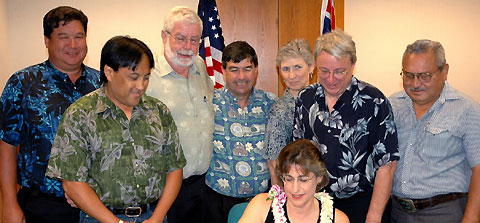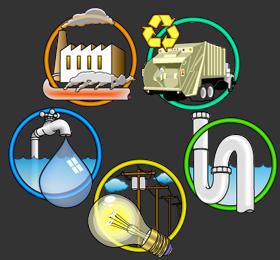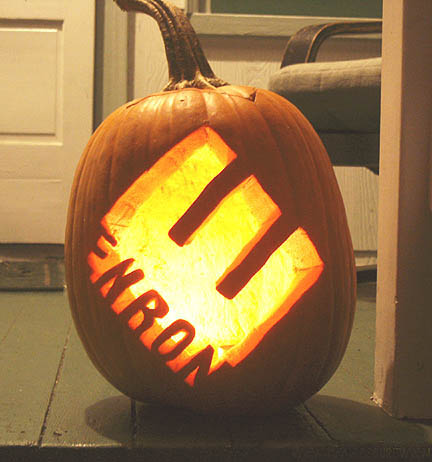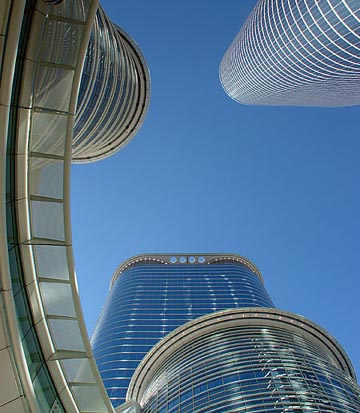INDEX - KAUAI
ECONOMICS
www.islandbreath.org ID# 0506-12
SOURCE: CAROL BAIN bain@kauai.net
POSTED: 27 November 2005 - 12:30pm HST
Push for KIUC Sunshine Policy

Some 2005 board members watch as Governor Lingle signs bill related to KIUC keeping unclaimed refunds
|
SOURCE: JUAN WILSON juanwilson@mac.com
KENRON: KIUC Scandal coverage by Garden Island
2
November 2005 - 10:00am

services provided by a real cooperative utility in Jamestown NY
For once it looked like our local daily rag, The Garden Island News (TGI) , had earned the name newspaper with its pointed series covering the goings on at Kauai Island Utility Cooperative (KIUC). The series, written by Andy Gross, woke people up and drew their attention to several important issues regarding the operation of the KIUC. Apparently the series offended some people in power. Those people made some phone calls. The unsigned editorial "In Our View" in Monday's TGI was titled "Time to Move Forward". It was a full retreat for the paper. It essentially disassociated itself with the investigative reporting. The editorial apologized for its actions that led to a falling out and breakdown in communication between TGI and KIUC. It certainly looks like somebody got called onto the carpet at the TGI. Last night I had a conversation with a friend who told me that Andy Gross has resigned from the paper over the lack of support embodied in the editorial. I have not gotten this confirmed from a second source, but if it is true it is a shame for the paper and a loss for the people of Kauai. Most likely the editor of TGI will have to stick to KIUC press releases and fluff pieces in the future. I lived in a community on the mainland that had a true non-profit utility cooperative. It was Jamestown, New York. Their cooperative was called the Board of Public Utilities (BPU) and provided electricity, water, waste water treatment, solid waste disposal and steam (for heating) to the city of Jamestown. They used coal from nearby Pennsylvania and had high tech scrubbers on their stacks and evaporative coolers on their turbines. Fairly efficient and clean. They provided electricity so cheap that some people were still heating with electric baseboard radiators when I left in 2000. The suburbs of Jamestown were served by a private utility company, named Niagra-Mowhark, at price three times higher than the BPU. Cooperatives can work, but the KIUC was formed as a golden parachute for the previous owners, Kauai Electric, and was a vehicle to create a debt burden that was foisted on the people of Kauai. The investigative reporting on the KIUC was a welcome moment in which I was proud to be a TGI subscriber. If the TGI cannot stand up to institutions like the KIUC and be an independent voice, then I will withdraw my daily advertising from the paper. |
SOURCE: RAY CHUAN chuan24658@yahoo.com
KENRON: Kauai Island Utility Cooperative
28
October 2005 - 8:00pm

Happy Halloween!
by
Ray Chuan on 28 October 2005 The
WSJ was very interested in this scam and was making preparations
to send someone over when they discovered that U.S. News
was already on the story. |
Editors
Note:Here are some links to more Ray Chaun: |
Pau
